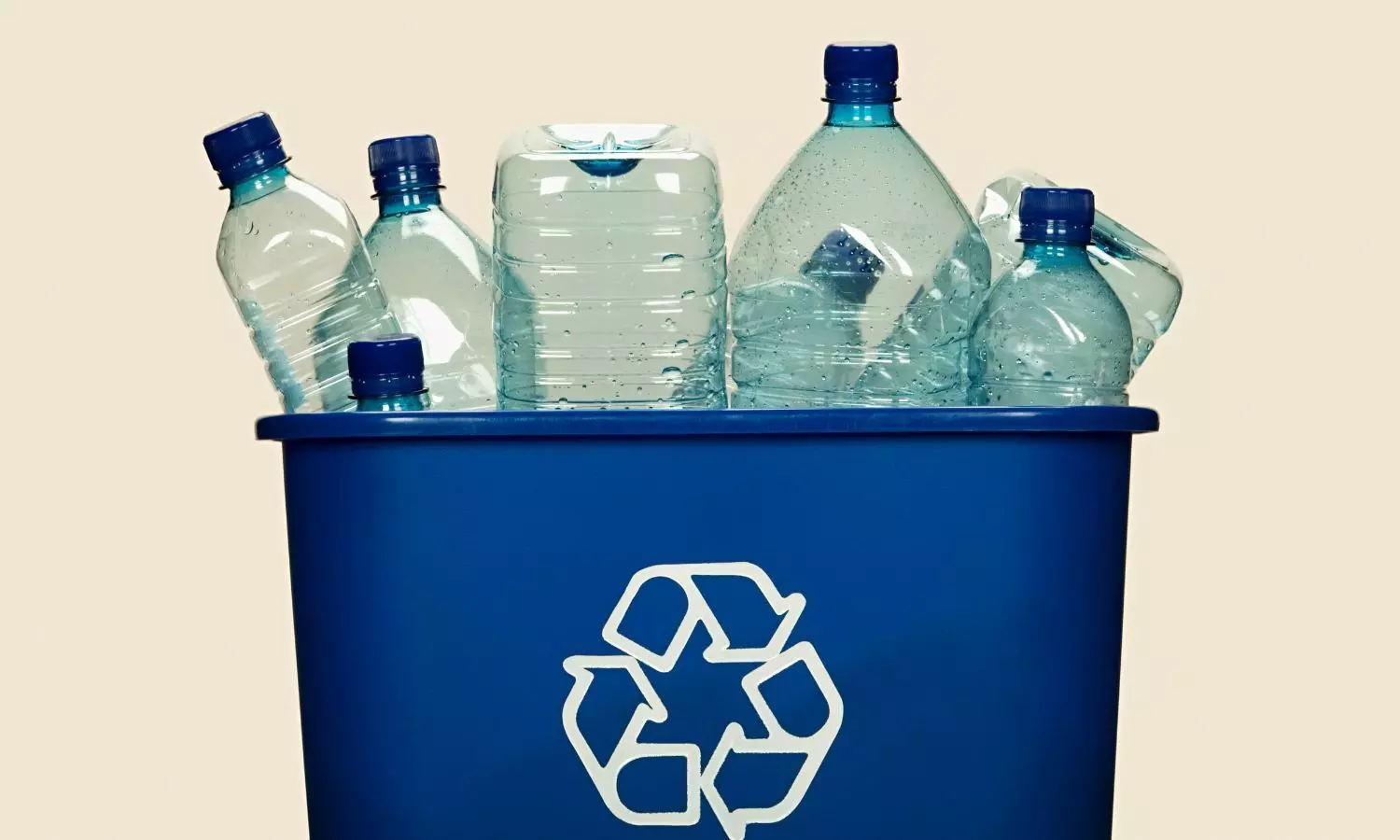Recycled Plastics May Pose Serious Health Risks, Study Finds

New Delhi: A new study has raised serious concerns about the safety of recycled plastic, warning that a single pellet of recycled polyethylene plastic can contain more than 80 different chemicals. These substances can leach into water and disrupt hormone systems and lipid metabolism, potentially harming both wildlife and human health.
The research, conducted by scientists from the University of Gothenburg and Leipzig University, highlights a critical flaw in plastic recycling — the presence of toxic chemicals that are rarely disclosed. Plastics are made with thousands of additives, many of which can be harmful. When plastics are recycled, these unknown substances can end up in new products, including those that come into contact with food or are used in daily life.
In the study, published in the Journal of Hazardous Materials, researchers purchased recycled plastic pellets made from polyethylene from various parts of the world. They soaked the pellets in water for 48 hours, then exposed zebrafish larvae to the water for five days. The larvae showed increased gene activity related to fat metabolism, hormone regulation, and fat cell development — early signs of potential long-term health effects.
“These short leaching and exposure times already show significant impacts. The chemicals released from the recycled plastic can clearly alter the biology and health of living organisms,” said Azora Konig Kardgar, lead author and ecotoxicologist at the University of Gothenburg.
Previous research has also shown that exposure to plastic-related chemicals in humans can lead to reproductive issues, hormone disruption, developmental problems in children, certain cancers, obesity, and diabetes.
Bethanie Carney Almroth, a professor at the University of Gothenburg and the project’s principal investigator, explained, “The big problem with recycling plastic is that we don’t really know what chemicals are in it. When different plastics are mixed during recycling, the result can be toxic.”
This study comes at a crucial time as global leaders prepare for the final round of negotiations for a Global Plastics Treaty. The meeting, under the United Nations Environmental Program, is set to take place in Geneva, Switzerland, this August. The treaty aims to address the growing plastic pollution crisis that threatens ecosystems and human health worldwide.


